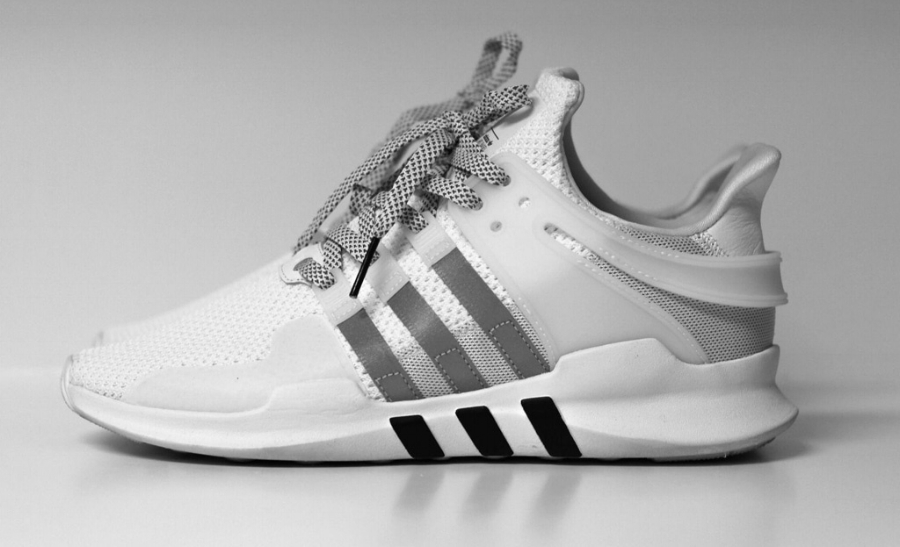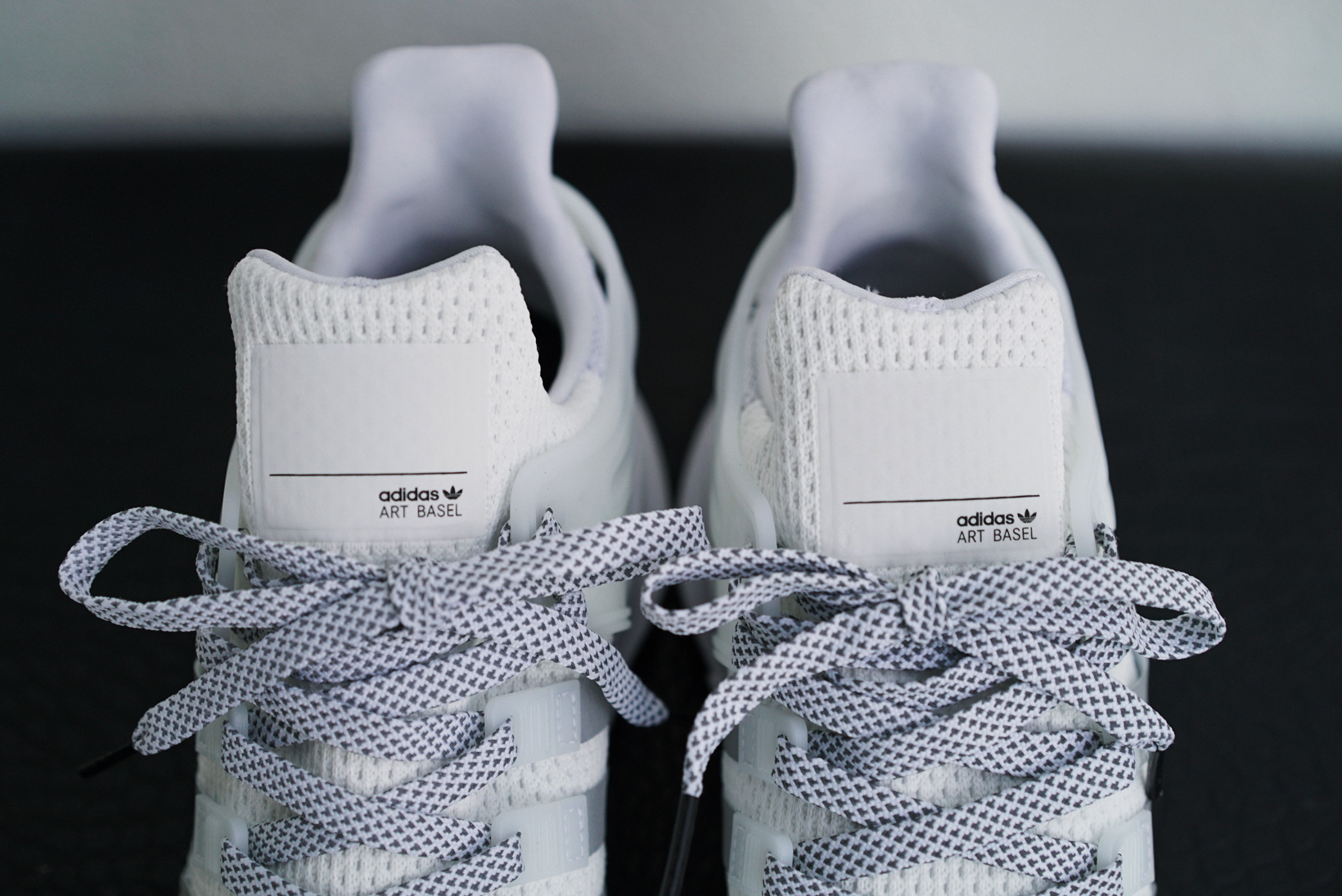
image: adidas
Adidas admits it was in the wrong. In furtherance of a settlement agreement with the organizers of Art Basel, which sued the German sportswear giant last May for using the festival’s name on 1,000 limited edition sneakers, adidas has acknowledged – by way of a statement – that it “did not obtain a license to use the Art Basel mark for these shoes, and was not a partner with, or a sponsor of, the Art Basel show.”
The sportswear brand further added that it “regrets these actions and is pleased that the lawsuit filed by Art Basel has been settled amicably.”
Adidas was slapped with a trademark lawsuit courtesy of Art Basel in the U.S. District Court for the Southern District of Florida in May, with the art festival alleging that adidas was on the hook for the “willful distribution of at least 1,000 pairs of sneakers bearing an unauthorized reproduction of Plaintiffs’ registered and incontestable ART BASEL® trademark.”
Art Basel alleged in its suit – which set forth claims of Federal trademark infringement, federal false association and false designation of origin, federal trademark dilution, and common law trademark infringement, etc. – that its “name and mark has been used internationally since at least as early as 1999 in connection with art fair expositions around the world and related goods.”
The famous art fest claimed that it “routinely permit its show partners to use the ART BASEL mark on an exclusive basis for valuable consideration. [It] have recently licensed the use of the ART BASEL mark to internationally well-known entities, such as UBS financial services, NetJets fractional airplane ownership company, BMW, Audemar Piguet watches, and Davidoff cigars.” Not on that list? Adidas.

Nonetheless, in 2016, the German sportswear giant allegedly “without receiving consent from [Art Basel], or even requesting such consent, designed sneakers improperly bearing the ART BASEL mark to promote its new version of the EQT sneaker,” thereby prompting Basel to file suit over what it called a “blatant disregard of its rights.”
There are at least two noteworthy takeaways from this suit. One: It is interesting to see adidas in the defendant’s role, as the Herzogenaurach, Germany-headquartered brand has been nothing if not a staunch – or as Forever 21 worded it, “over-aggressive” – protector of its own intellectual property as of late. Within the past several years, it has initiated trademark-related matters against Gucci, Shoe Branding Europe, football club FC Barcelona, Italian fashion brand Bally, fellow footwear brand ECCO, Skechers, Marc Jacobs, and Elon Musk’s Tesla, among others.
The other notable point: Aside from adidas’ statement, all other aspects of the parties’ settlement are confidential. So, there will be no confirmation of whether Art Basel got its way demanding that adidas recall and destroy any of the remaining shoes, at least some of which are currently being offered by third parties on re-sale sites, like eBay and Postmark, for between $150 and $600.
If adidas has, in fact, agreed to attempt to collect and destroy any/all of the existing pairs of the sneakers at issue, this stands to make the already exclusive and thus, already valuable, sneakers even more covetable and profit-inducing. The thriving sneaker re-sale market is an testament to the fervent interest of sneaker collectors in hard-to-come-by shoes, and the seemingly ever-decreasing number of adidas’ allegedly infringing Art Basel footwear will likely prove a selling for at least some of the most ardent collectors.
With this in mind, it turns out there is another way to increase the demand for and value of footwear, aside from simply making very limited quantities of them: Have that shoe style be the center of an infringement lawsuit.
* The case is MCH Swiss Exhibition (Basel) Ltd., V. Adidas America, Inc. and Adidas AG, 1:17-cv-22002-DPG (FLSD).







